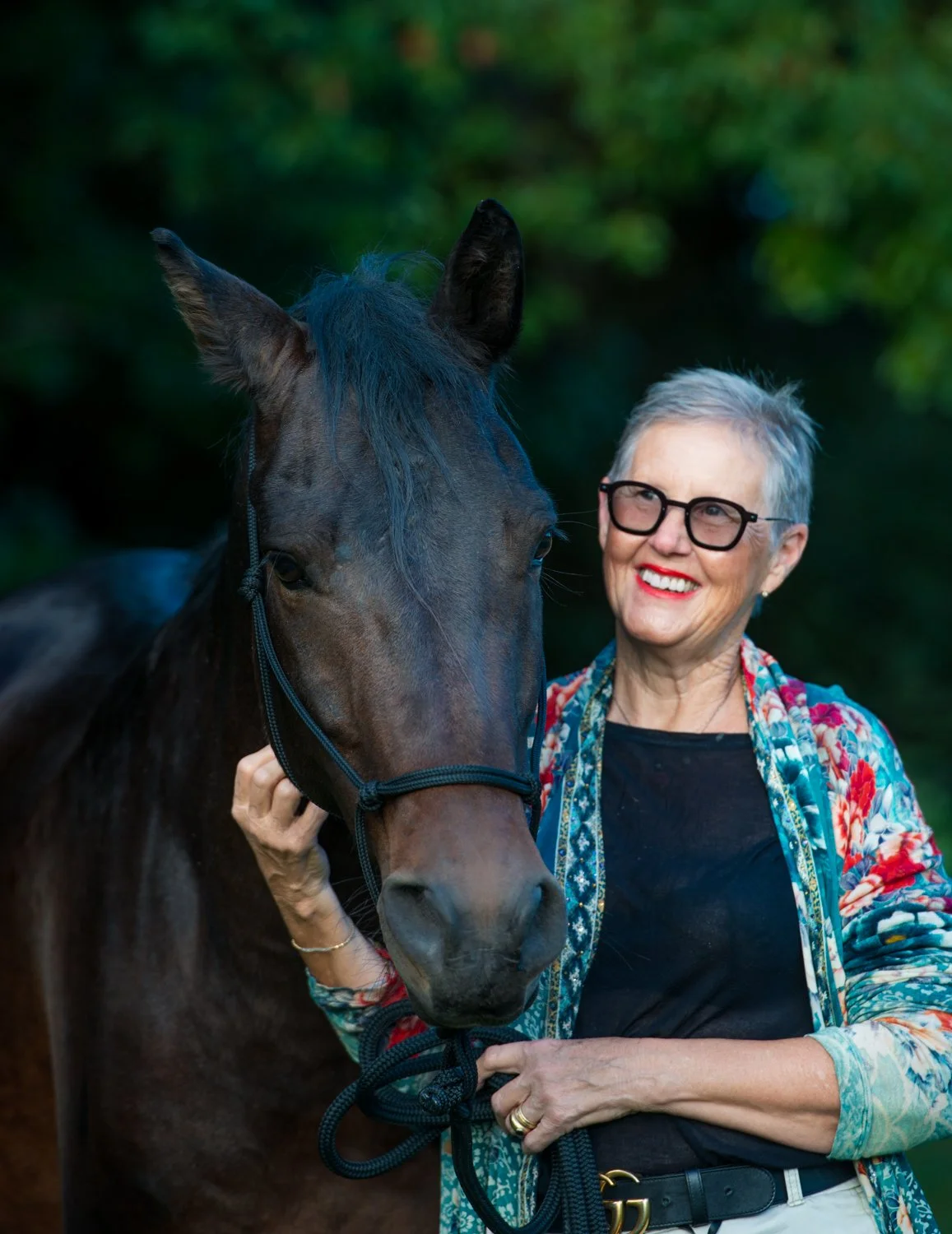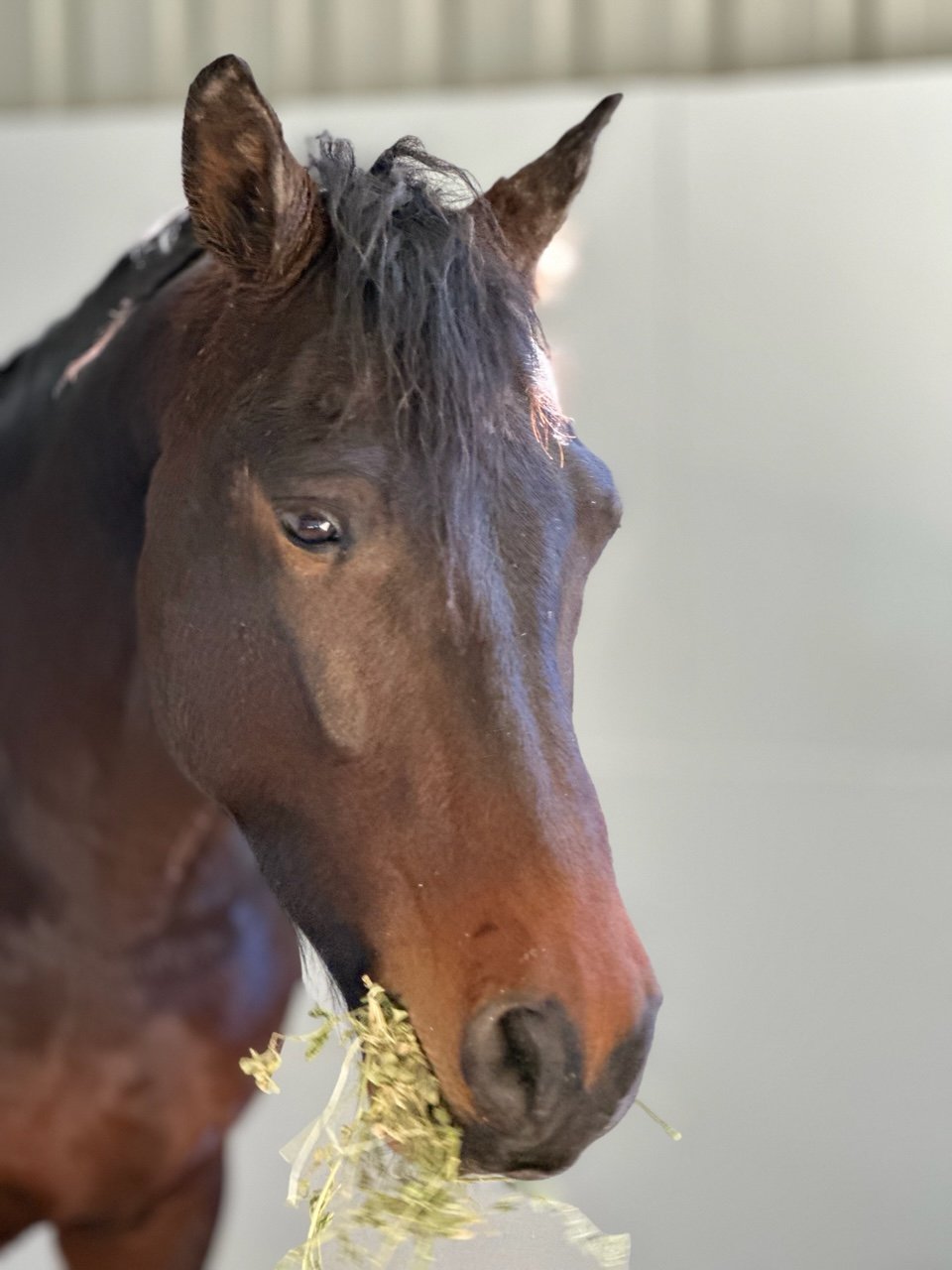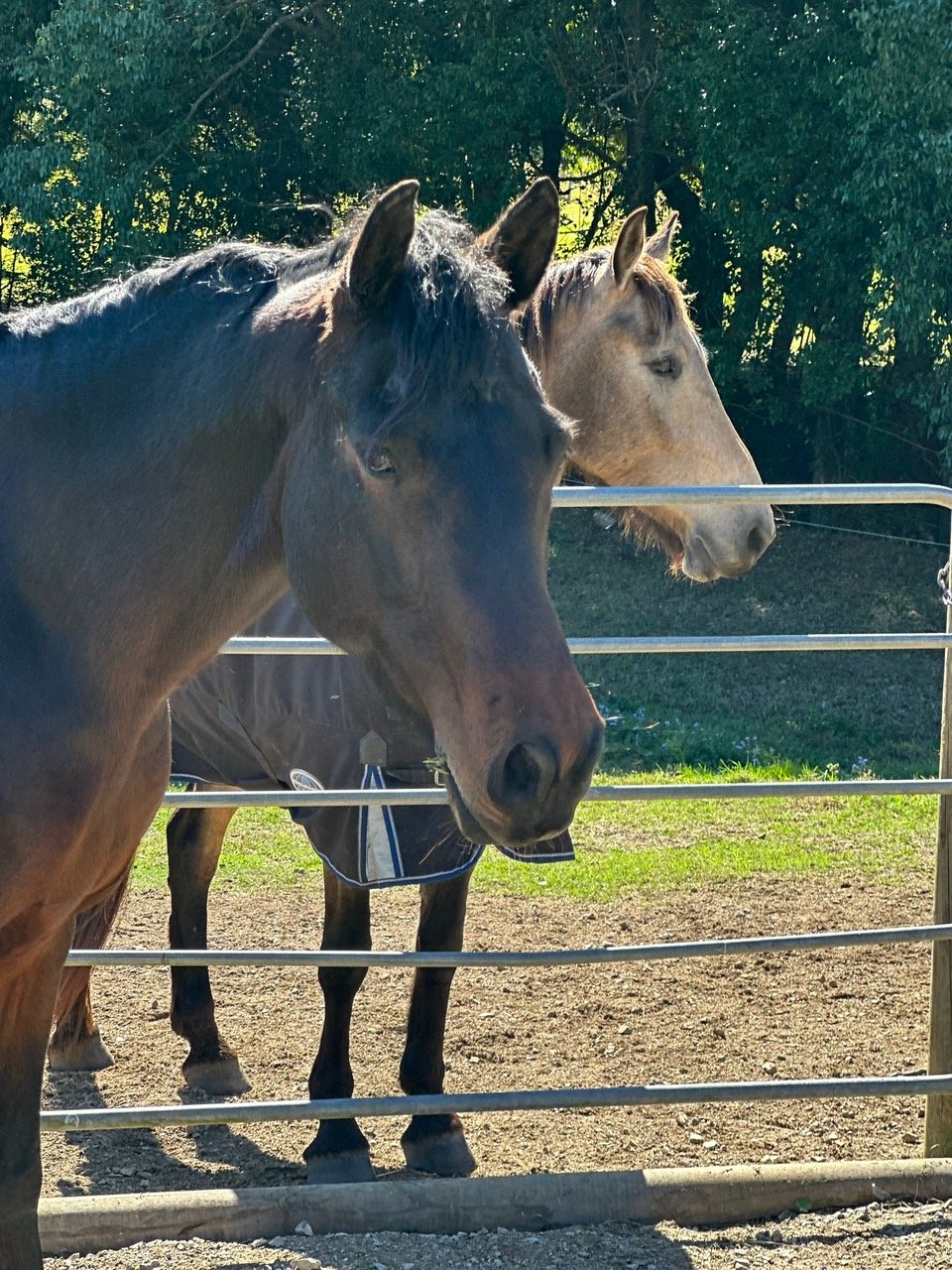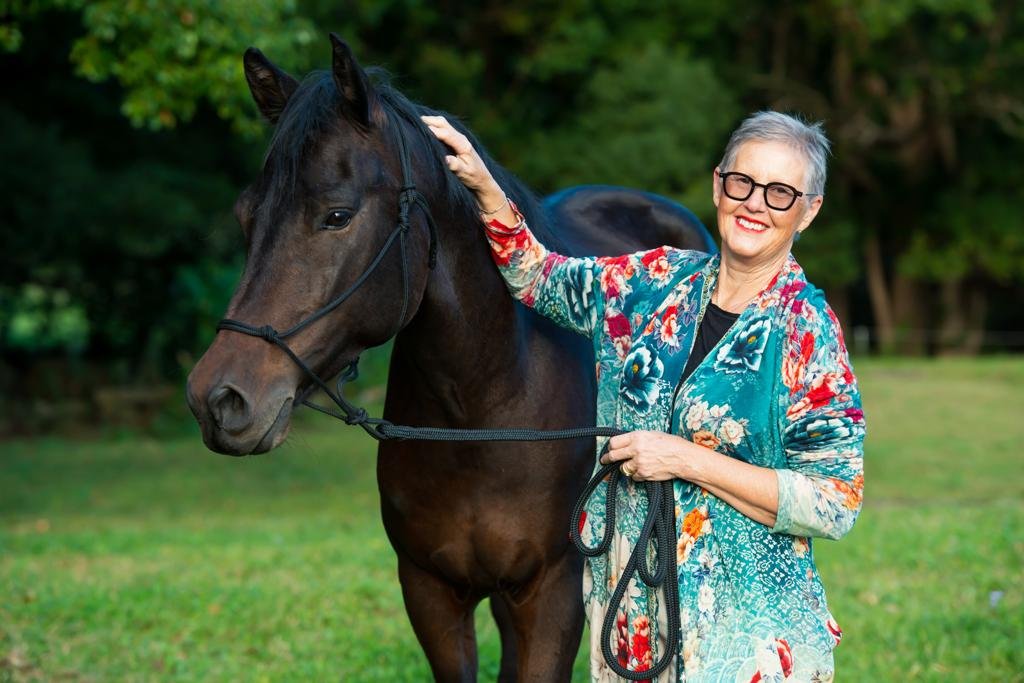Why Equine Psychotherapy?
Horses thrive on direct, unmediated connections and are aware of and extremely sensitive to the moment-to-moment cross-species relationship. In equine psychotherapy, clients are offered a safe space to explore their inner process within this unique relational space.
In this therapy, we strive to support holistic growth by working with the creative intelligence of horses in a natural environment, fostering a relationship based on mutual awareness, connection and authenticity that is created through a directly felt understanding between horse and person.
The equine-assisted psychotherapy model is an experiential approach grounded in psychological theory, neuroscience, Buddhist psychotherapy principles of Mindfulness, interpersonal awareness, and the immediacy of living in the present. In this form of psychotherapy, the horse can support the process by demonstrating these skills for the client and therapist alike.
The horse offers the possibility for connection, it does not judge and hence offers opportunities for better self-regulation and clarity. Equine therapy is a gentle, profound, and transformative experience. Thus, working with horses is a natural adjunct to the overall process of somatic psychotherapy, which involves looking into and understanding our thoughts, feelings, body sensations, attitudes and belief systems—the keys to our physical, mental and emotional well-being.
During equine psychotherapy sessions, a licensed mental health professional, often accompanied by a horse expert, facilitates the interactions between the client and the horse. These interactions are carefully structured to achieve specific therapeutic goals. Horses are highly sensitive and intuitive animals, capable of mirroring human emotions and providing immediate feedback without judgment, making them effective therapeutic partners.
The process begins with the therapist and client observing the horse's behaviour, reactions, and body language. This observation helps the therapist draw parallels to the client's emotions, attitudes, and behaviours. Clients are encouraged to participate in various activities like grooming, feeding, or leading the horse, which fosters a sense of responsibility, empathy, and trust.
Equine psychotherapy can benefit individuals of all ages, including children, adolescents, and adults, and it can address a wide range of mental health issues, including anxiety, depression, trauma, ADHD, and interpersonal difficulties.
Key principles of equine psychotherapy include:
Nonverbal Communication: As horses do not understand spoken language, clients must communicate with them using body language and emotional cues. This encourages clients to become more aware of their nonverbal communication and emotional responses.
Emotional Regulation: Interacting with horses can evoke strong emotions, and clients learn to regulate their emotions and reactions effectively during sessions.
Relationship Building: Developing a relationship with the horse helps clients improve their interpersonal skills, trust-building, and boundary-setting.
Self-awareness: Clients gain insight into their own thoughts, feelings, and behaviours as they observe how the horse responds to their actions.
Experiential Learning: Clients learn through direct experience, which can be more impactful than traditional talk therapy alone.
Equine psychotherapy does not involve horse riding, and the focus is on the client-horse relationship rather than horsemanship skills.
As with any therapeutic approach, the effectiveness of equine psychotherapy varies from person to person. However, many individuals report positive outcomes, citing increased self-esteem, reduced anxiety, enhanced communication, and improved overall well-being.
In summary, equine psychotherapy is a powerful and unique therapeutic method that harnesses the innate sensitivity of horses to facilitate personal growth, emotional healing, and improved mental health for individuals facing various challenges.
Who is Cheryl Assange?
Cheryl Assange is a unique psychotherapist who combines over 30 years of experience in several different forms of psychotherapy. She is a highly skilled and dedicated practitioner who brings to her work passion and curiosity in support of the growth and development of her clients.
Her therapeutic work is supported by her ongoing study of human beings’ fundamental need for connection and the nature of suffering that occurs when interpersonal connection gets disrupted.
Cheryl’s education includes extensive training in Self Psychology, Counselling and ‘Talk Therapy’, Buddhist Psychotherapy and Mindfulness, Somatic Psychotherapy, and specialised training in Equine Psychotherapy, in which clients grow through working with another species.






